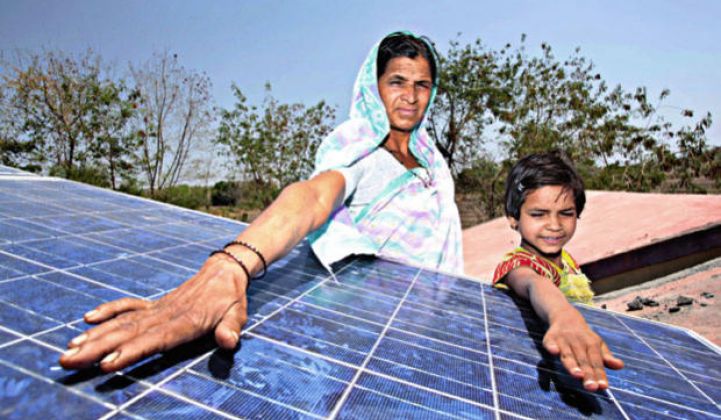Leading solar crowdsourcing firm Mosaic is the latest entrant into clean energy’s next big market: off-grid applications.
Thanks to a grand prize of $1 million from Verizon Powerful Answers, Mosaic will develop a mobile app and expand loan products to emerging markets in Africa, Brazil, India and Asia.
With machine-to-machine (M2M) technology poised to unlock clean energy for hundreds of millions of people around the world, the move couldn’t be more timely.
Making solar accessible for everyone is a key part of Mosaic’s mission. Nearly half of its projects have focused on providing solar for underprivileged schools and community centers here in the U.S. Making solar work for the world’s poor is a logical extension of its mission.
“By providing reliable energy to these previously unserved parts of the world, students can study after dark, medical supplies can be refrigerated, appliances can enhance productivity, and access to information and financial services can be increased, improving lives and alleviating some of the harshest poverty on earth,” said Daniel Rosen, Mosaic’s CEO, in a statement.
Taking on projects in underserved markets comes with a number of infrastructure and financing challenges. But developing countries are a multi-billion-dollar market, and they are the site of the world’s next wireless revolution. Mosaic and other similar companies using crowdsourcing models have a lot of room for growth if they position themselves well in these markets.
While some of the biggest names in solar, such as First Solar, Sun Edison and SolarCity, have created energy access programs, the off-grid opportunity is still largely untapped. That leaves a wide open market for Mosaic to address. If the company can capture a fraction of the retail investment market, it’s looking at a $90 billion opportunity (total crowdfunding in 2013 was somewhere near $5 billion).
Despite the opportunity, the space is still cash-starved. Large development institutions like the World Bank have been slow to invest, largely because they’ve failed to realize that small is big. Crowdsourcing could be the fastest way to jumpstart the grid clean energy market and deliver important services to people without access to the grid.
Think of organizations like Mosaic as the speedboats that can help the supertankers (i.e., the World Bank) finally make their way in the sector and bring it to scale.
If successful, Mosaic could help catalyze the sector and recapture the energy development narrative, which is still dominated by thinkers in favor of saddling the world's poor with the most toxic and outdated technologies.
It's time to use 21st century technologies to bring energy access to the world's poorest populations. Mobile phones and crowdsourcing models can play a central role in addressing the market.
***
Justin Guay leads the Sierra Club's international program.



